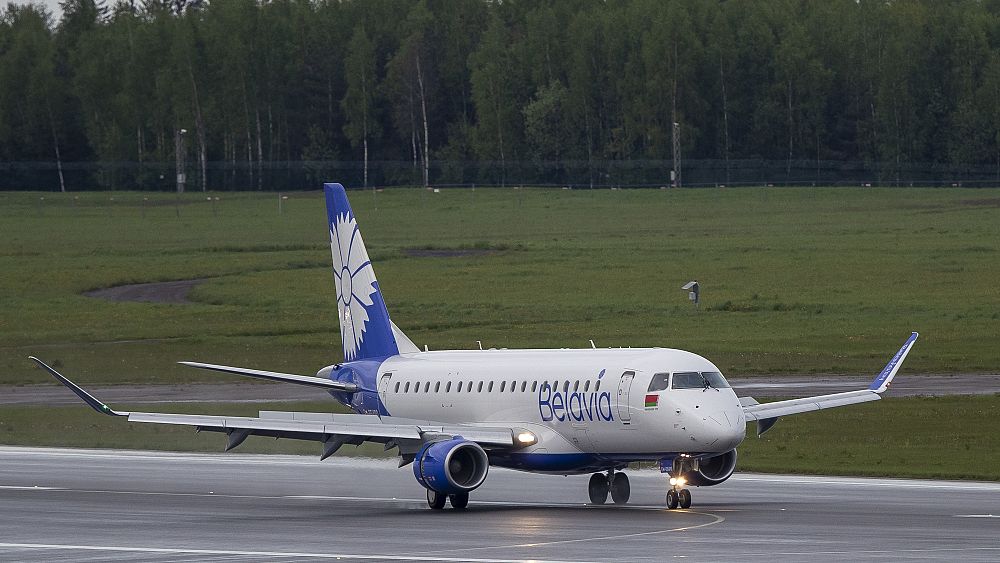
EU foreign ministers are considering possible sanctions against Belarusia’s national airline over allegations that it is transporting migrants from Iraq in order to push them across the country’s border into the bloc.
Several ministers want to stop EU-registered companies leasing aircraft to the country’s national airline Belavia.
This would ban European companies from doing any business with the national airline. The aim is to stop the Minsk regime’s efforts to move migrants over EU land borders, by flying them to Belarus and letting them cross over into Latvia, Lithuania and Poland.
Speaking before the meeting in Luxembourg on Monday, Lithuania’s foreign minister Gabrielius Landsbergis said: “We need to find ways how to stop the flights to Belarus, to Minsk airport and sanctions to Belavia, that’s one thing.
“Another thing is to send a message to airlines that now are actually bringing people from any other country to Belarus and bringing them with the intention to migrate that they are under the European radar. We are seeing them and this is not ok.”
Ireland is the EU’s hub for aircraft leasing and some Irish firms are continuing to lease planes to Belavia, which are used to transfer migrants to the EU’s borders.
Simon Coveney, the Irish foreign minister, said that his country is in favour of sanctions, but only if they apply to future lease contracts, not existing ones.
“How we actually increase the pressure to sanctions is something we are very much open to,” Coveney said. “But I think we should also make the distinction between the sanctions that would involve no further or future aircraft leasing to Belavia in contrast to existing contracts that are in place where there are legal obligations.”
Nikolai Ehlers, a legal expert on aviation law told Euronews that the Irish proposal, while good, would impede the sanctions’ effectiveness.
He stressed that such sanctions would affect private companies exposing them to contractual claims.
“This would mean that we would be seeing further areas of war, of disputes between the contractual parties and then, in turn, the parties concerned, the lessors concerned, they would be exposed to contractual claims and they would want to recover for any losses resulting from the government that imposes those measures on them,” Ehlers said.
Meanwhile, the humanitarian situation on the border continues to worsen, with seven migrants known to have died on the EU’s border with Belarus.











